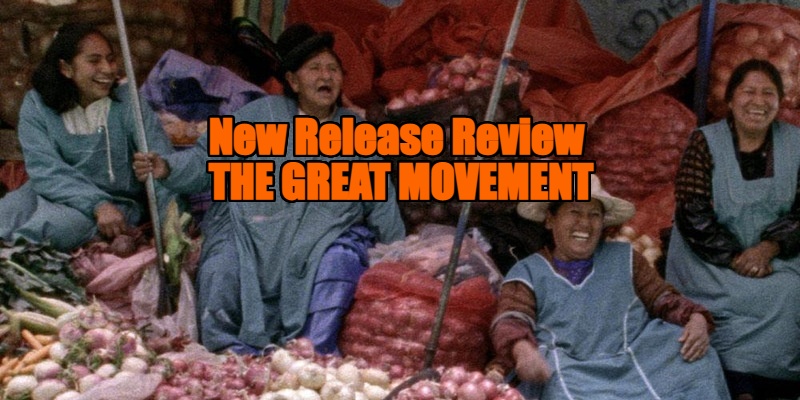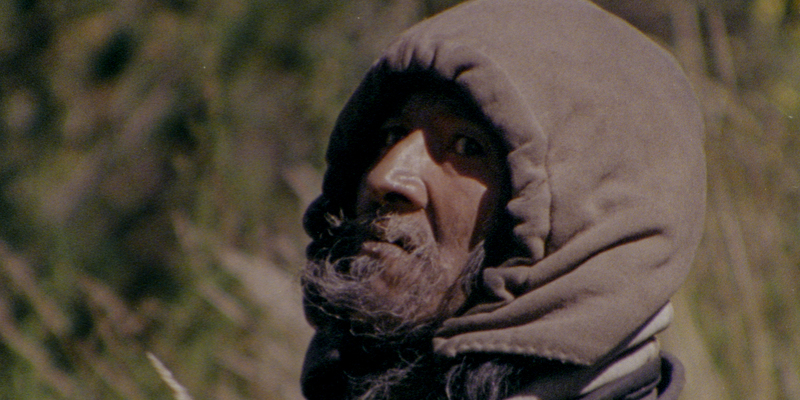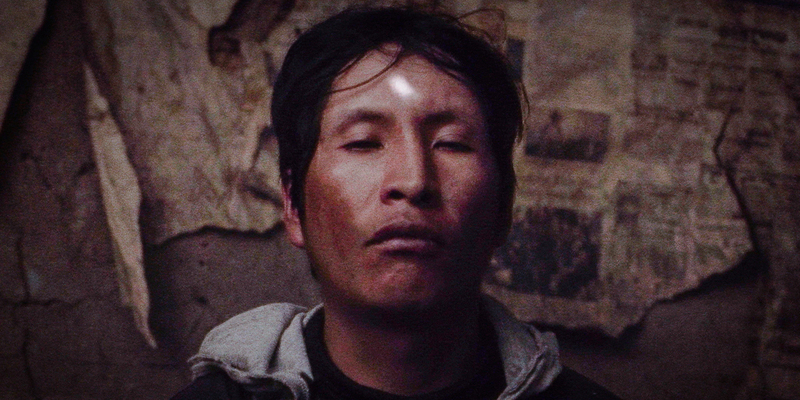
A young miner battling for worker's rights enlists the aid of a witch
doctor when he succumbs to a mystery ailment.
Review by
Benjamin Poole
Directed by: Kiro Russo
Starring: Julio Cezar Ticona, Francisa Arce De Aro, Max Bautista Uchasara, Israel Hurtado, Gustavo
Milán, Ricardo Aguilera

Is it me or is cinema, and films in general, getting a bit, well, boring
and safe? Various industry Cassandras (Richard Rushfield, my favourite gay
uncle Bret Easton Ellis) are heralding the death of cinema as we know it,
basing their doomy prognoses on the advent of streaming (which, according
to my daily mailshot from Finimize, may similarly be heading into a ‘bear
market’ - yikes) along with the detrimental impact of various lockdowns.
And aside from these injurious practical factors, there is the content
itself... Repeated IPs, franchising, remakes: watching trailer reels today
has a crushing over familiarity, and even the ensuing Twitter discourse
has a rinse/repeat insularity. It’s hard to get excited about the medium
in the way we used to. As I write, it is the Academy Awards weekend, and
while us lot will comment and riff and share thoughts, the idea of this
preening charade having any impact on the wider public is unimaginable:
who cares? Why should they?

The silver lining to this ennui, though, is the thrill one receives when
happening upon something which is highly distinct and actually, proper
good. Case in point, the joy involved in watching a screener of
The Great Movement, Kiro Russo’s undefinable movie concerning proletarian life in
Bolivia, and laughing along in wonder at the surprises and marvels within.
A master storyteller, Russo’s film opens in a long shot of El Paz; sun
worn and unbearably urban, a looming monster of glass, steel and brick
work. Non-diegetic sounds of the angry city - cars, building work,
concrete smashing - fill the soundtrack as we zoom in (god, I love the big
dick energy of a zoom) to our main characters, a disparate and rumpled
bunch of miners who are poor, caught up in a labour dispute and suffering
from the vicissitudes of the city’s unyielding societal structures.
Russo’s filmmaking is so animated and peculiar that the mind leaps for apt
comparisons. Here’s one: in high praise, the shots of the city, the
perfect immersion, the boots on the ground sense of ‘being there’,
reminded me of the wonderful NYC photography of
Larry Cohen. Here, La Paz is a city captured in full dusty, vivid motion. It’s not
just what Russo shoots, it’s how he films it, too. He has a magpie eye for
locating the third dimensions of a place that make it so substantively
tangible. Thus, we are alongside the miners knocking about in town,
arguing with a boss, and in one marvellously held static shot, having an
impromptu boogie in a bar. This established verisimilitude anchors the
film as the loose narrative develops: our main character Elder (played by
Julio César Ticona, in a role apparently repeated from one of
Russo’s earlier films) has an ailment, for which he seeks out the services
of a witch doctor.

In this concise film’s second half, the narrative opens up into a pagan
panorama of occult imagery and sumptuous vistas of deep green and wild
nature: you can feel your lungs expanding with the powerfully placebo
effect. Yes, the contrast between primal nature and circumscribed
municipality is hardly a new observation, but the way in which Russo
relates his themes is entirely fresh and vital. This is a film where every
frame is reconsidered for ultimate photographic impact. And as
The Great Movement progresses, so does Russo’s visual
ambition, entering into the realms of perfectly portioned out magic
realism. For example, there is a scene where the doldrum market women, who
we have only previously witnessed selling the various produce which their
male counterparts have harvested, randomly break into a proper '80s style
choreographed dance routine - back lit alleys, dry ice - that had me
grinning in utter pleasure.

Eventually, however, visual dynamics and narrative playfulness is not
enough for Russo, and thus (inspiring another comparison, this time to
Švankmajer) the editing pushes moments together in a clumsy rush, the
frames are cramped on top of one another and begin to splinter, as if the
filmmaker is in frustration at the fundamental limits of the medium
itself. It is breath-taking and feels almost dangerous (it would be
irresponsible to wonder what watching The Great Movement in
an ‘altered state’ may feel like, with the stifling hyper-reality of the
everyday city in turn colourfully redeemed by flowing, psychedelic
spaces...). All this and a lovely white wolf, too.

The Great Movement is in UK cinemas
and VOD from April 15th.

